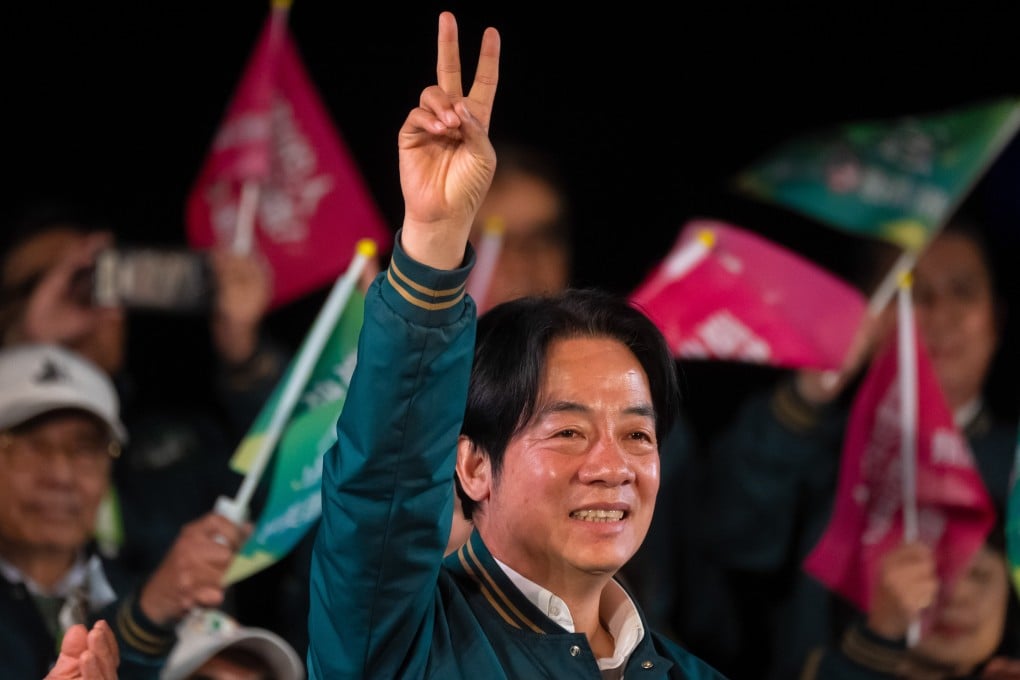Advertisement
Taiwan elected a new leader who’s seen by Beijing as a ‘troublemaker’. Now what?
- Beijing faces a dilemma as it tries to balance the election of William Lai with domestic challenges and the US factor, analysts say
- They expect ‘more carrots than sticks’ in cross-strait policy, as well as efforts to bring ‘division and instability into Taiwanese society’
Reading Time:6 minutes
Why you can trust SCMP
10

Beijing’s dilemma over Taiwan has deepened with the election of a new leader who looks poised to steer the self-ruled island further away from mainland China.
William Lai Ching-te’s win adds to pressure on Beijing’s fragile detente with Washington, at a time when the Chinese economy is sputtering.
Beijing has described Lai – who takes over from Tsai Ing-wen as president in May – as a “troublemaker” and “stubborn ‘Taiwan independence’ activist”, and framed the election as a choice between war and peace.
As tensions have soared across the Taiwan Strait in recent years, the Communist Party has repeatedly rejected calls for talks from the Tsai administration.
Advertisement
And while many expected Beijing to react forcefully after the independence-leaning Democratic Progressive Party was voted in for an unprecedented third term in January, the response has been subdued so far.
Probably Beijing officials in charge of Taiwan affairs are having some sleepless nights
According to analysts, that restraint reflects the conundrum Beijing faces in balancing domestic challenges, the US factor and the leadership change in Taipei. They expect Beijing to be closely watching and reviewing cross-strait policy ahead of Lai’s inauguration, but say major changes are unlikely.
Advertisement
Zhiqun Zhu, an international relations professor and director of the China Institute at Bucknell University in Pennsylvania, said it was a dilemma for Beijing.
Advertisement
Select Voice
Select Speed
1.00x
